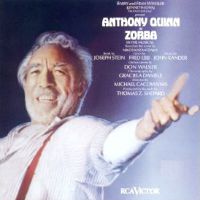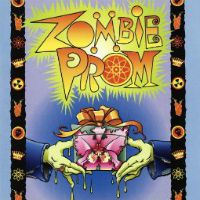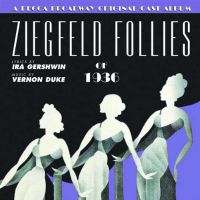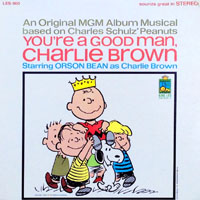 Studio Cast, 1966 (MGM/no CD)
Studio Cast, 1966 (MGM/no CD)  (3 / 5) Long out of print, this recording was one of the first musical theater “concept albums.” Few people seem to be aware that You’re a Good Man, Charlie Brown began not as an Off-Broadway show but as a recording of 10 songs by composer-lyricist Clark Gesner, inspired by Charles Schultz’s extraordinarily popular “Peanuts” comic strip. Very difficult to track down, the LP is noteworthy for several reasons aside from its historical value as the basis for one of the most successful Off-Broadway musicals ever. The four-member cast — Orson Bean as Charlie Brown, Barbara Minkus as Lucy, Bill Hinnant as Snoopy, and Gesner himself as Linus — is excellent. Although Bean is probably best remembered as a television host and game show panelist, he was a fine actor, and his Charlie Brown is endearing even if Bean never really creates the impression of being a child. Minkus, on the other hand, does have a “little girl” voice that she puts to excellent use in Lucy’s numbers, especially “Schroeder” and “The Doctor Is In.” Gesner is charming in his one solo spot, Linus’s “My Blanket and Me.” And Hinnant is thoroughly delightful as Snoopy, a role he owned for quite some time (see below). This is the only recording of YAGMCB to boast a full orchestra, led by legendary conductor Jay Blackton. Those trumpets in the title song and those strings in “Snoopy” really add something to the music. — Michael Portantiere
(3 / 5) Long out of print, this recording was one of the first musical theater “concept albums.” Few people seem to be aware that You’re a Good Man, Charlie Brown began not as an Off-Broadway show but as a recording of 10 songs by composer-lyricist Clark Gesner, inspired by Charles Schultz’s extraordinarily popular “Peanuts” comic strip. Very difficult to track down, the LP is noteworthy for several reasons aside from its historical value as the basis for one of the most successful Off-Broadway musicals ever. The four-member cast — Orson Bean as Charlie Brown, Barbara Minkus as Lucy, Bill Hinnant as Snoopy, and Gesner himself as Linus — is excellent. Although Bean is probably best remembered as a television host and game show panelist, he was a fine actor, and his Charlie Brown is endearing even if Bean never really creates the impression of being a child. Minkus, on the other hand, does have a “little girl” voice that she puts to excellent use in Lucy’s numbers, especially “Schroeder” and “The Doctor Is In.” Gesner is charming in his one solo spot, Linus’s “My Blanket and Me.” And Hinnant is thoroughly delightful as Snoopy, a role he owned for quite some time (see below). This is the only recording of YAGMCB to boast a full orchestra, led by legendary conductor Jay Blackton. Those trumpets in the title song and those strings in “Snoopy” really add something to the music. — Michael Portantiere
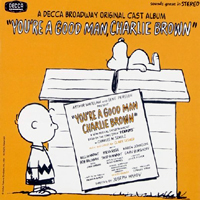 Original Off-Broadway Cast, 1967 (MGM/Decca)
Original Off-Broadway Cast, 1967 (MGM/Decca)  (4 / 5) This recording is recommended primarily for the definitive performances of its cast. Gary Burghoff, later famous as Radar O’Reilly in the long-running television series M*A*S*H , is perfect as Charlie Brown. It’s a difficult assignment in that the character has to seem hapless and “wishy-washy,” as everyone (including himself) thinks he is, yet he must be appealing and sympathetic to the audience in an Everyman sort of way. Burghoff walks that line beautifully, and is persuasive in all of Charlie’s vocal moments. Reva Rose is equally great in the role of Lucy; her semi-screaming of the high notes in “The Doctor Is In” (a.k.a. “Dr. Lucy”) is priceless, and she’s a stitch when giving tons of wrong information to brother Linus in “Little Known Facts.” Bob Balaban is an adorable Linus, and Bill Hinnant is even better as Snoopy here than he is on the concept album; he’s also given more to do, thanks to the addition of the “Red Baron” scene and other juicy sections of dialogue taken directly from the “Peanuts” strip. Karen Johnson has virtually no solo moments in the role of Patty, and Skip Hinnant (Bill’s brother) has only slightly more to do as Schroeder. There were a few significant additions to the score for the show’s stage debut as compared to what’s heard on the original recording; among them are Charlie Brown’s extended solo in “T.E.A.M.” and “Book Report,” a clever ensemble number in which Charlie, Lucy, Linus and Schroeder each take different approaches to the same homework assignment. The title song has also been expanded considerably. The score’s instrumentation here is limited to piano and percussion, but the sound quality of the recording is exceptionally good, and there’s a palpable theatricality about it. Decca Broadway’s CD reissue of the album has four bonus tracks of demos performed by Gesner and Barbara Minkus, with Gesner at the piano. — M.P.
(4 / 5) This recording is recommended primarily for the definitive performances of its cast. Gary Burghoff, later famous as Radar O’Reilly in the long-running television series M*A*S*H , is perfect as Charlie Brown. It’s a difficult assignment in that the character has to seem hapless and “wishy-washy,” as everyone (including himself) thinks he is, yet he must be appealing and sympathetic to the audience in an Everyman sort of way. Burghoff walks that line beautifully, and is persuasive in all of Charlie’s vocal moments. Reva Rose is equally great in the role of Lucy; her semi-screaming of the high notes in “The Doctor Is In” (a.k.a. “Dr. Lucy”) is priceless, and she’s a stitch when giving tons of wrong information to brother Linus in “Little Known Facts.” Bob Balaban is an adorable Linus, and Bill Hinnant is even better as Snoopy here than he is on the concept album; he’s also given more to do, thanks to the addition of the “Red Baron” scene and other juicy sections of dialogue taken directly from the “Peanuts” strip. Karen Johnson has virtually no solo moments in the role of Patty, and Skip Hinnant (Bill’s brother) has only slightly more to do as Schroeder. There were a few significant additions to the score for the show’s stage debut as compared to what’s heard on the original recording; among them are Charlie Brown’s extended solo in “T.E.A.M.” and “Book Report,” a clever ensemble number in which Charlie, Lucy, Linus and Schroeder each take different approaches to the same homework assignment. The title song has also been expanded considerably. The score’s instrumentation here is limited to piano and percussion, but the sound quality of the recording is exceptionally good, and there’s a palpable theatricality about it. Decca Broadway’s CD reissue of the album has four bonus tracks of demos performed by Gesner and Barbara Minkus, with Gesner at the piano. — M.P.
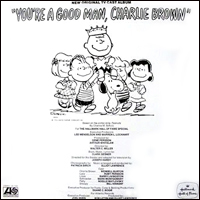 TV Cast, 1973 (Atlantic/no CD)
TV Cast, 1973 (Atlantic/no CD)  (3 / 5) Also out of print for decades, this cast album of a 1973 “Hallmark Hall of Fame” TV production of You’re a Good Man, Charlie Brown is quite enjoyable in that the company is generally strong and the score is more fully orchestrated than on the Off-Broadway recording (though less fully orchestrated than on the concept recording). The performers include Wendell Burton, who had played Charlie Brown on stage in San Francisco; Bill Hinnant, again outstanding as Snoopy; and Barry Livingston, of My Three Sons TV fame, as an appealing Linus. In the role of Lucy, Ruby Persson gives a creditable performance, far better than one would expect after noticing that she has the same last name as one of the show’s producers. Rounding out the cast are Mark Montgomery as a charming Schroeder and Noelle Matlovsky in the thankless role of Patty. If you have a working turntable hooked up to your sound system at home, a vinyl LP copy of this album is worth seeking out as more than a curiosity. — M.P.
(3 / 5) Also out of print for decades, this cast album of a 1973 “Hallmark Hall of Fame” TV production of You’re a Good Man, Charlie Brown is quite enjoyable in that the company is generally strong and the score is more fully orchestrated than on the Off-Broadway recording (though less fully orchestrated than on the concept recording). The performers include Wendell Burton, who had played Charlie Brown on stage in San Francisco; Bill Hinnant, again outstanding as Snoopy; and Barry Livingston, of My Three Sons TV fame, as an appealing Linus. In the role of Lucy, Ruby Persson gives a creditable performance, far better than one would expect after noticing that she has the same last name as one of the show’s producers. Rounding out the cast are Mark Montgomery as a charming Schroeder and Noelle Matlovsky in the thankless role of Patty. If you have a working turntable hooked up to your sound system at home, a vinyl LP copy of this album is worth seeking out as more than a curiosity. — M.P.
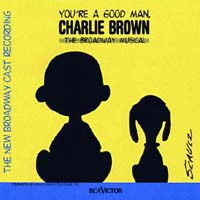 Broadway Cast, 1999 (RCA)
Broadway Cast, 1999 (RCA)  (2 / 5) When the original production of You’re a Good Man Charlie Brown transferred to Broadway after a downtown, Off-Broadway run of more than 1500 performances, it closed within a month. But the musical received countless amateur and regional productions over the years, and it may have been a fear of over-familarity that prompted the producers of the ’99 Broadway version to have composer-lyricist Andrew Lippa revise and augment the original score. Aside from aggressively rearranging Clark Gesner’s music, Lippa contributed a catchy new section of the title song, but the two new numbers he wrote from scratch are highly questionable additions: Schroeder’s “Beethoven Day” is a joyously rhythmic pop tune, the problem here being that this fussy, “serious-musician” type would never express himself in such a way; and though Kristin Chenoweth, in the newly created role of Sally Brown, somehow manages to mine comic gold from “My New Philosophy,” the song itself really isn’t that funny. There’s fine work from Anthony Rapp as Charlie Brown, Ilana Levine as Lucy, B.D. Wong as a lisping Linus, and Roger Bart in a winning turn as Snoopy. Stanley Wayne Mathis does a good job with “Beethoven Day,” but he’s as miscast in the role of Schroeder as the song is wrong for the character. The practically superfluous role of Patty was eliminated for this production and replaced by Sally, who became an integral part of the show, largely due to Chenoweth’s Tony Award-winning portrayal. — M.P.
(2 / 5) When the original production of You’re a Good Man Charlie Brown transferred to Broadway after a downtown, Off-Broadway run of more than 1500 performances, it closed within a month. But the musical received countless amateur and regional productions over the years, and it may have been a fear of over-familarity that prompted the producers of the ’99 Broadway version to have composer-lyricist Andrew Lippa revise and augment the original score. Aside from aggressively rearranging Clark Gesner’s music, Lippa contributed a catchy new section of the title song, but the two new numbers he wrote from scratch are highly questionable additions: Schroeder’s “Beethoven Day” is a joyously rhythmic pop tune, the problem here being that this fussy, “serious-musician” type would never express himself in such a way; and though Kristin Chenoweth, in the newly created role of Sally Brown, somehow manages to mine comic gold from “My New Philosophy,” the song itself really isn’t that funny. There’s fine work from Anthony Rapp as Charlie Brown, Ilana Levine as Lucy, B.D. Wong as a lisping Linus, and Roger Bart in a winning turn as Snoopy. Stanley Wayne Mathis does a good job with “Beethoven Day,” but he’s as miscast in the role of Schroeder as the song is wrong for the character. The practically superfluous role of Patty was eliminated for this production and replaced by Sally, who became an integral part of the show, largely due to Chenoweth’s Tony Award-winning portrayal. — M.P.
 Off-Broadway Cast, 2016 (Broadway Records)
Off-Broadway Cast, 2016 (Broadway Records)  (1 / 5) There exists a recording of the Humperdinck opera Hänsel und Gretel with with actual children singing the title roles, which were intended by the composer to be sung by an adult mezzo soprano and soprano (respectively). Although that may sound like a good idea in theory from the standpoint of verisimilitude, in practice it doesn’t work, because the demands of the music are beyond the abilities of pre-pubescent voices. Needless to say, if the composer had wanted these roles to be sung by children, he would have written them very differently. A similar situation exists with this cast album of the 2016 York Theatre Company production of You’re a Good Man, Charlie Brown, which featured performers ranging in age from 9 to 14 and retained the unnecessary, mostly unfortunate Andrew Lippa revisions/additions to the score. Although this show is far from operatic in style, it still requires a vocal maturity that these youngsters obviously don’t possess. The kids also generally fall short in terms of musical phrasing, comic timing, and persuasive delivery of the fair amount of spoken dialogue included on the recording; it often sounds as if their inflections were grafted onto them by the director, rather than being organic. All of that makes this the least satisfying recording of the score. Interestingly, the opening number here interpolates a couple of measures of the cool jazz trio music that Vince Guaraldi composed for the classic 1960s TV special A Charlie Brown Christmas. Justly famous and beloved as this riff is, it doesn’t fit with the original Clark Gesner songs any better than does the Lippa material. One wonders if rights had to be obtained to use it, and at what price! — M.P.
(1 / 5) There exists a recording of the Humperdinck opera Hänsel und Gretel with with actual children singing the title roles, which were intended by the composer to be sung by an adult mezzo soprano and soprano (respectively). Although that may sound like a good idea in theory from the standpoint of verisimilitude, in practice it doesn’t work, because the demands of the music are beyond the abilities of pre-pubescent voices. Needless to say, if the composer had wanted these roles to be sung by children, he would have written them very differently. A similar situation exists with this cast album of the 2016 York Theatre Company production of You’re a Good Man, Charlie Brown, which featured performers ranging in age from 9 to 14 and retained the unnecessary, mostly unfortunate Andrew Lippa revisions/additions to the score. Although this show is far from operatic in style, it still requires a vocal maturity that these youngsters obviously don’t possess. The kids also generally fall short in terms of musical phrasing, comic timing, and persuasive delivery of the fair amount of spoken dialogue included on the recording; it often sounds as if their inflections were grafted onto them by the director, rather than being organic. All of that makes this the least satisfying recording of the score. Interestingly, the opening number here interpolates a couple of measures of the cool jazz trio music that Vince Guaraldi composed for the classic 1960s TV special A Charlie Brown Christmas. Justly famous and beloved as this riff is, it doesn’t fit with the original Clark Gesner songs any better than does the Lippa material. One wonders if rights had to be obtained to use it, and at what price! — M.P.
 Film Soundtrack, 1944 (MGM/Rhino-Turner)
Film Soundtrack, 1944 (MGM/Rhino-Turner)  (1 / 5) Based on a series of stories by Sally Benson that originally appeared in The New Yorker, Vincente Minnelli’s Meet Me in St. Louis is one of the glories of MGM’s Arthur Freed unit, but the film doesn’t have enough noteworthy music or interesting vocal performances to fill a soundtrack album. Judy Garland renders Hugh Martin and Ralph Blane’s “The Boy Next Door,” “The Trolley Song,” and “Have Yourself a Merry Little Christmas” with an exquisitely light touch. She also does a lovely job with “Boys and Girls Like You and Me,” a Rodgers and Hammerstein song that wound up on the cutting-room floor. About half of the Rhino-Turner CD consists of musical underscoring from the movie, which means that a few vocal gems alternate with long stretches of orchestral tedium, even though the instrumental tracks do feature luxurious orchestrations by Conrad Salinger. — Charles Wright
(1 / 5) Based on a series of stories by Sally Benson that originally appeared in The New Yorker, Vincente Minnelli’s Meet Me in St. Louis is one of the glories of MGM’s Arthur Freed unit, but the film doesn’t have enough noteworthy music or interesting vocal performances to fill a soundtrack album. Judy Garland renders Hugh Martin and Ralph Blane’s “The Boy Next Door,” “The Trolley Song,” and “Have Yourself a Merry Little Christmas” with an exquisitely light touch. She also does a lovely job with “Boys and Girls Like You and Me,” a Rodgers and Hammerstein song that wound up on the cutting-room floor. About half of the Rhino-Turner CD consists of musical underscoring from the movie, which means that a few vocal gems alternate with long stretches of orchestral tedium, even though the instrumental tracks do feature luxurious orchestrations by Conrad Salinger. — Charles Wright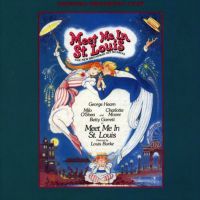 Original Broadway Cast, 1989 (DRG)
Original Broadway Cast, 1989 (DRG)  (2 / 5) Back when this stage version of Meet Me in St. Louis opened, who could have ever foreseen that, not too many years later, Broadway would be reduced to a theme park full of musical revivals, revisals, and adaptations of Hollywood movies? The score of the show was a mixture of the small handful of standards contained in MGM’s 1944 film and additional numbers by Hugh Martin and Ralph Blane. Ironically, the paucity of invention on Broadway over the past decade makes this technically splendid recording of a so-called “New Broadway Hit Musical” worth a second listen. A revision of a stage adaptation that Martin, Blane, and Sally Benson had concocted in 1960 as summer fare for the Municipal Opera of St. Louis, the Broadway Meet Me in St. Louis was quite overproduced; its lavish set design by Keith Anderson included a frozen pond on which dancers executed intricate skating choreography by Michael Tokar. In addition to its visual excesses, the show offered a sprightly mix of Martin-Blane songs and old chestnuts like “Skip to My Lou” and “Under the Bamboo Tree” (both in the film version as well), sumptuously orchestrated by Michael Gibson and well performed by a plucky, talented cast. It’s hard not to feel an uplift of spirit when the large pit band, under Bruce Pornahac’s baton, soars through the lush overture, with its combination of brassiness and schmaltz; or when Donna Kane, the show’s ingenue, lets rip her energetic rendition of “The Trolley Song.” The show didn’t last long in New York, but its thoroughly listenable score is a reminder that Martin and Blane deserve a page in the Great American Songbook. — C.W.
(2 / 5) Back when this stage version of Meet Me in St. Louis opened, who could have ever foreseen that, not too many years later, Broadway would be reduced to a theme park full of musical revivals, revisals, and adaptations of Hollywood movies? The score of the show was a mixture of the small handful of standards contained in MGM’s 1944 film and additional numbers by Hugh Martin and Ralph Blane. Ironically, the paucity of invention on Broadway over the past decade makes this technically splendid recording of a so-called “New Broadway Hit Musical” worth a second listen. A revision of a stage adaptation that Martin, Blane, and Sally Benson had concocted in 1960 as summer fare for the Municipal Opera of St. Louis, the Broadway Meet Me in St. Louis was quite overproduced; its lavish set design by Keith Anderson included a frozen pond on which dancers executed intricate skating choreography by Michael Tokar. In addition to its visual excesses, the show offered a sprightly mix of Martin-Blane songs and old chestnuts like “Skip to My Lou” and “Under the Bamboo Tree” (both in the film version as well), sumptuously orchestrated by Michael Gibson and well performed by a plucky, talented cast. It’s hard not to feel an uplift of spirit when the large pit band, under Bruce Pornahac’s baton, soars through the lush overture, with its combination of brassiness and schmaltz; or when Donna Kane, the show’s ingenue, lets rip her energetic rendition of “The Trolley Song.” The show didn’t last long in New York, but its thoroughly listenable score is a reminder that Martin and Blane deserve a page in the Great American Songbook. — C.W.

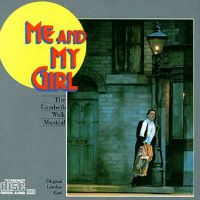
 (4 / 5) This production took a very charming, very old musical, gussied up the book, the score, and the arrangements, and presented it to the public as a lovely nostalgia fest. Me and My Girl had originally opened in London in 1937 and enjoyed a very long run. With music by Noel Gay and book and lyrics by L. Arthur Rose, the show tells the sweet tale of Bill Snibson, a cockney ne’er-do-well who turns out to be an earl and is pressured to forsake his Lambeth girlfriend, Sally Smith, when he assumes his title. Director Mike Ockrent, producer Richard Armitage, and executive producer David Aukin supervised the musical’s rebirth, incorporating revisions by playwright Stephen Fry and Ockrent, and interpolating several songs with music by Gay from other sources. The production proved to be a big success in London and, a year later, on Broadway. Among the best numbers are the title song, Bill’s “Leaning on a Lamp Post,” and the catchy “Lambeth Walk,” which was a huge international hit in 1937 and delighted a new generation of audiences when resurrected in the 1980s. The recording is skillfully produced by Norman Newell. As Bill, Robert Lindsay is a real charmer, and so is his Sally: Emma Thompson, who went on to a brilliant career as a highly respected actress in non-musical films. — Michael Portantiere
(4 / 5) This production took a very charming, very old musical, gussied up the book, the score, and the arrangements, and presented it to the public as a lovely nostalgia fest. Me and My Girl had originally opened in London in 1937 and enjoyed a very long run. With music by Noel Gay and book and lyrics by L. Arthur Rose, the show tells the sweet tale of Bill Snibson, a cockney ne’er-do-well who turns out to be an earl and is pressured to forsake his Lambeth girlfriend, Sally Smith, when he assumes his title. Director Mike Ockrent, producer Richard Armitage, and executive producer David Aukin supervised the musical’s rebirth, incorporating revisions by playwright Stephen Fry and Ockrent, and interpolating several songs with music by Gay from other sources. The production proved to be a big success in London and, a year later, on Broadway. Among the best numbers are the title song, Bill’s “Leaning on a Lamp Post,” and the catchy “Lambeth Walk,” which was a huge international hit in 1937 and delighted a new generation of audiences when resurrected in the 1980s. The recording is skillfully produced by Norman Newell. As Bill, Robert Lindsay is a real charmer, and so is his Sally: Emma Thompson, who went on to a brilliant career as a highly respected actress in non-musical films. — Michael Portantiere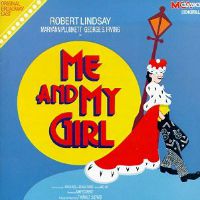
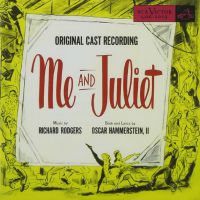
 (3 / 5) It’s hard to believe, but Rodgers and Hammerstein did have a few flops in addition to their many hits. Me and Juliet was one such failure, and the team’s only foray into the backstage musical genre. Still, even this score contains flashes of brilliance. “Marriage Type Love” is a tuneful charm song with a wonderfully romantic lyric, while “That’s the Way It Happens” has just the right pithiness and nonchalance that’s called for. Probably the best and most famous item in the show is “No Other Love,” based on a theme that Rodgers originally wrote for the background score of Victory at Sea, a television documentary on World War II. It’s a lovely song with a beguiling melody, even if it is indicative of the non-character-specific writing in Me and Juliet. Many of the songs are misfires, particularly “We Deserve Each Other” and “Keep It Gay,” both of which are leaden. There is one showbiz-themed song that succeeds: “Intermission Talk.” Isabel Bigley as Jeanie heads the cast, fresh from her starring role in Guys and Dolls; Bill Hayes displays a very appealing voice as Larry; and Joan McCracken as Betty steals the show with her special brand of sassiness. — Gerard Alessandrini
(3 / 5) It’s hard to believe, but Rodgers and Hammerstein did have a few flops in addition to their many hits. Me and Juliet was one such failure, and the team’s only foray into the backstage musical genre. Still, even this score contains flashes of brilliance. “Marriage Type Love” is a tuneful charm song with a wonderfully romantic lyric, while “That’s the Way It Happens” has just the right pithiness and nonchalance that’s called for. Probably the best and most famous item in the show is “No Other Love,” based on a theme that Rodgers originally wrote for the background score of Victory at Sea, a television documentary on World War II. It’s a lovely song with a beguiling melody, even if it is indicative of the non-character-specific writing in Me and Juliet. Many of the songs are misfires, particularly “We Deserve Each Other” and “Keep It Gay,” both of which are leaden. There is one showbiz-themed song that succeeds: “Intermission Talk.” Isabel Bigley as Jeanie heads the cast, fresh from her starring role in Guys and Dolls; Bill Hayes displays a very appealing voice as Larry; and Joan McCracken as Betty steals the show with her special brand of sassiness. — Gerard Alessandrini

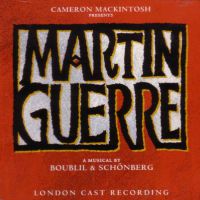
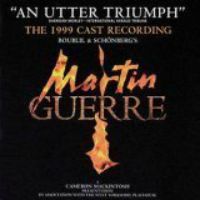
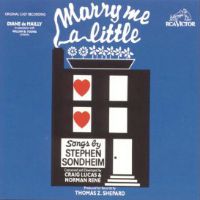
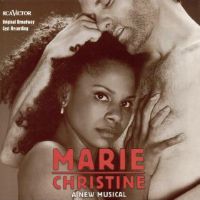
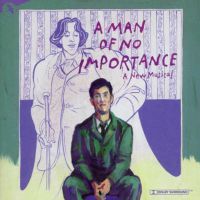
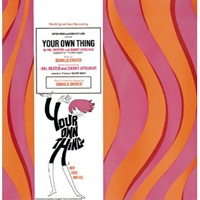





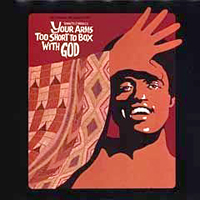
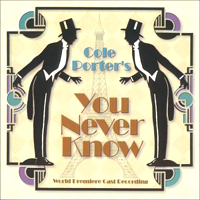
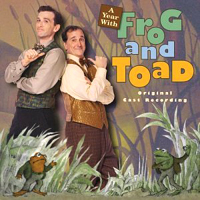

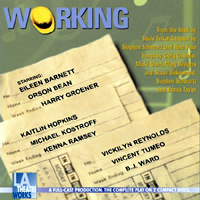
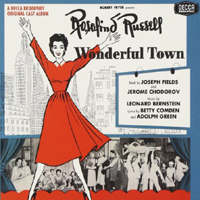




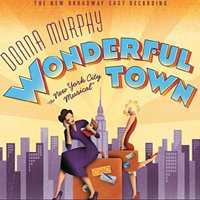
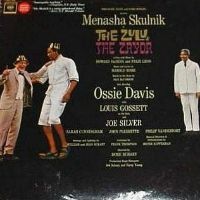
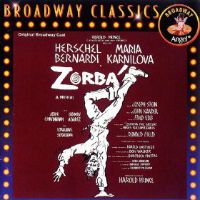
 (5 / 5) Are you sitting down? When I saw Zorba in its original Broadway production (not the horrible Anthony Quinn revival; see below), I thought it a better show than Cabaret, the previous Broadway outing of the team that put this show together: composer John Kander, lyricist Fred Ebb, and director Harold Prince. To me, Zorba is more emotional, deals with life more broadly, and is brilliantly theatrical. Whereas many Kander and Ebb musicals are made up of a succession of special-material songs, this one has an honest, mature, character- and plot-driven score. The opening number, “Life Is,” perfectly sets the theme of the evening. (The first line, “Life is what you do while you’re waiting to die,” was watered down to “Life is what you do till the moment you die” for later productions.) “Happy Birthday” is a wonderfully touching number for the death scene of Madame Hortense, while “Why Can’t I Speak” is a very beautiful song that exemplifies the protagonist Niko’s emotional problems. Although some of the events in Joseph Stein’s libretto are tragic, the audience leaves the theater moved, enlightened, even uplifted — and the cast album has the same effect on the listener. Herschel Bernardi, Maria Karnilova, John Cunningham, Carmen Alvarez, and Lorraine Serabian drive the recording with their sincerity, energy, and abundant talent. — Ken Bloom
(5 / 5) Are you sitting down? When I saw Zorba in its original Broadway production (not the horrible Anthony Quinn revival; see below), I thought it a better show than Cabaret, the previous Broadway outing of the team that put this show together: composer John Kander, lyricist Fred Ebb, and director Harold Prince. To me, Zorba is more emotional, deals with life more broadly, and is brilliantly theatrical. Whereas many Kander and Ebb musicals are made up of a succession of special-material songs, this one has an honest, mature, character- and plot-driven score. The opening number, “Life Is,” perfectly sets the theme of the evening. (The first line, “Life is what you do while you’re waiting to die,” was watered down to “Life is what you do till the moment you die” for later productions.) “Happy Birthday” is a wonderfully touching number for the death scene of Madame Hortense, while “Why Can’t I Speak” is a very beautiful song that exemplifies the protagonist Niko’s emotional problems. Although some of the events in Joseph Stein’s libretto are tragic, the audience leaves the theater moved, enlightened, even uplifted — and the cast album has the same effect on the listener. Herschel Bernardi, Maria Karnilova, John Cunningham, Carmen Alvarez, and Lorraine Serabian drive the recording with their sincerity, energy, and abundant talent. — Ken Bloom